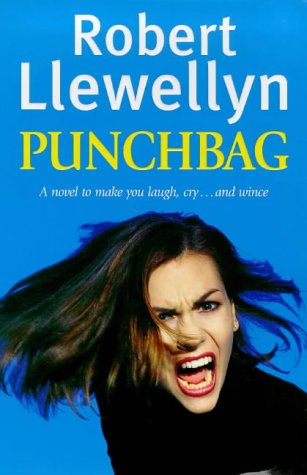 Now, you know how for the last few months, particularly in relation to TBR, I’ve occasionally mentioned how “there’s a book coming” which I’d already “ordered”? Well this is that book.
Now, you know how for the last few months, particularly in relation to TBR, I’ve occasionally mentioned how “there’s a book coming” which I’d already “ordered”? Well this is that book.
What happened was that toward the end of last year I’d heard about Unbound and I was interested (it’s like “Kickstarter for Books” if that means anything). Mostly because I would like to see a model of publishing that is able to adapt to the new world of ebooks, but without being a free-for-all with no concept of gatekeepers. When I saw Robert’s Llewellyn’s pitch for this book, and that was not long after having read and enjoyed Punchbag, I knew I wanted to support both this book and the site.
There were a couple of minor annoyances with the Unbound experience. There was less in the way of updates than I’d hoped (the Unbound website has an “author’s shed” area which you gain access to by supporting the book.) Also the release date slipped a couple of times and at least once we only heard after failing to receive the book. But overall given this is a very new venture they can be forgiven these hiccups.
Anyway onto the book itself.
News From Gardenia is the story of a man from the 21st century who gets inexplicably transported into the world of a couple of centuries in the future. What he finds there is a world very unlike our own. A world where people don’t use energy like it’s an inexhaustible resource. Or any other resource for that matter. Gardenia is the future name for Britain where people have taken to supplying their food needs via gardening. However the hero of this book also visits a number of other societies of the future, some which have adapted very differently, and all different to our own.
OK so this is a Utopian novel and as the author himself acknowledges it’s actually very difficult to write such a book and make it interesting. You can’t fall back on alien invasion, zombie apocalypse or environmental catastrophe to create drama for you. (Though as you’ll recall at least one of those doesn’t automatically make for a gripping story.) And I knew this from the pitch. I guess I had some confidence based on the fact that Punchbag managed to be both an “issue” book and a “proper story”.
News From Gardenia doesn’t. Not quite. It’s reasonably interesting, especially when you know that there’s no technology in the book that fundamentally new. It’s a future that could happen if we collectively chose it. However the problem is that the story of our hero and his attempts to adapt to his new life are always subservient to descriptions of how things work. So it becomes a kind of travelogue of the future.
This is not helped by a rather abrupt and ambiguous ending. I had to double-check that there wasn’t a chapter missing in my ebook copy.
However it was a short, easy read and fairly interesting on its main topic.
6/10 – an intriguing look at energy conservation and use, not so much an actual story though.
